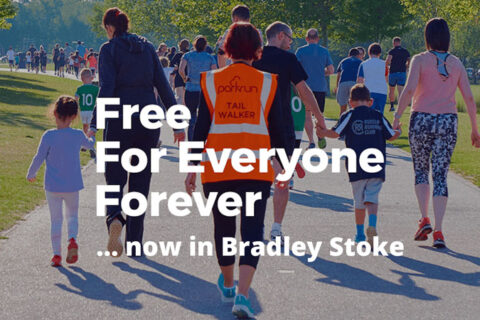The family of a three-year-old Bradley Stoke boy are joining a worldwide campaign to raise awareness about the devastating brain condition which almost claimed his life.
And even though he survived, Dylan Passmore will face a lifetime of challenges after he was affected by encephalitis and bacterial meningitis at nine weeks old.
Now, his parents Katherine and Kristian, want more people to learn about the condition, an inflammation of the brain, ahead of World Encephalitis Day on Monday 22nd February.
Around 500,000 people are affected by encephalitis globally each year, regardless of their age, gender, ethnic origin or culture.
Without the proper treatment, up to a third will lose their life, while survivors can be left with a legacy of challenges brought upon by the subsequent acquired brain injury.
Mum Katherine said:
“Dylan is partially sighted and blind in one eye. He also has learning and developmental difficulties.”
“He very nearly died and is lucky to be here.”
“Life for him is hard, emotional and exhausting and although he is an absolutely wonderful child, this horrible illness has made his life difficult daily and parenting Dylan the right way very challenging.”
“He has three siblings aged 11, eight, and 10 months who all also feel the effects of Dylan and his quirks.”
Katherine added:
“As a family, we want to make people aware of encephalitis and the devastating effects it can have on sufferers and their loved ones.”
“Our lives have been changed forever by this brain illness and it is only thanks to the fast actions of the Bristol Children’s Hospital that Dylan is still with us.”
“We had never heard of encephalitis and its mostly invisible life-long effects are hard for all involved.”
“Bacterial meningitis is widely publicised yet not many people are aware of encephalitis.”
“We want other people to be more aware of it so it can be caught quickly and also so that people can be more understanding to those impacted by the after effects.”
Survivors of encephalitis can face an uncertain future as the condition can leave them with an acquired brain injury – meaning a return to work or education can be difficult.
Abilities such as concentration, attention, thinking, memory, judgement and inhibition can also be affected, while there can be additional challenges such as epilepsy or fatigue.
The family are calling on people to join them in supporting World Encephalitis Day.
Led by The Encephalitis Society, the public are being asked to “wear something red” and raise awareness and funds for the charity on 22nd February, as part of the #RED4WED campaign.
The public can also vote for the winner in a Short Film, Digital Art and Photography Competition which has received entries from around the world by visiting www.worldencephalitisday.org
Dr Ava Easton, Chief Executive of The Encephalitis Society, said:
“We launched World Encephalitis Day so people affected by this devastating condition can come together to raise awareness about encephalitis.”
“We still have a long way to go to make the public and some health professionals aware of a condition which affects more people than motor neurone disease (MND) and bacterial meningitis and yet remains less well known.”
“But having survivors and their families come forward to show the human side of this ‘hidden disability’ can only be a good thing for informing the public about this condition.”
“The sad fact is that not many people have heard of encephalitis unless it has happened to them, a family member or friend. We want to change that.”
For more information, visit www.worldencephalitisday.org




